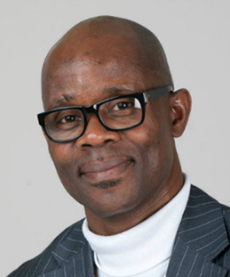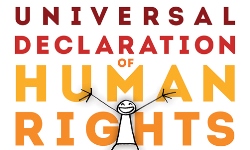 Both terrorism and the resulting protective measures imposed by democratic governments place additional threats to human rights and the free communication of ideas and opinions, according to a Charles Sturt University (CSU) researcher.
Both terrorism and the resulting protective measures imposed by democratic governments place additional threats to human rights and the free communication of ideas and opinions, according to a Charles Sturt University (CSU) researcher.
Associate Professor Chika Anyanwu (pictured), researcher and academic in the CSU School of Communication and Creative Industries in Bathurst, elaborates his argument in an article in the special issue of the International Journal of Speech-Language Pathology which celebrates the 70th Anniversary of the Universal Declaration of Human Rights (UDHR).
‘The fear of communicating fear versus the fear of terrorised legislation: A human rights violation or sign of our time?’, explores the philosophical context of the Universal Declaration of Human Rights in 1948 with the constraints on expression imposed as part of the contemporary ‘war on terror’.
Professor Anyanwu said, “At its very first session in London in 1946, the United Nations General Assembly, adopted Resolution 59(I) which states that ‘freedom of information is a fundamental human right and … the touchstone of all the freedoms to which the United Nations is consecrated’.
“Furthermore, in 1948, it proclaimed the UDHR in Paris. Article 19 of that Declaration states, ‘Everyone has the right to freedom of opinion and expression; this right includes freedom to hold opinions without interference and to seek, receive and impart information and ideas through any media and regardless of frontiers’.
“When we place these basic human rights against current global terror threats, and consequent restrictive anti-terror legislations to combat them, the question becomes whether Article 19 is still relevant in the context of today’s changed security landscape.”
Professor Anyanwu says it is even more difficult today for human rights advocacy to separate oppressive regimes who use terrorism as subterfuge for the suppression of basic human rights, and governments who are struggling to balance human rights expectations with national security.
“The challenge therefore is how to find the right balance between basic human rights, the protection of freedom of information, and the guaranteeing of public safety in a world under siege from terrorism,” Professor Anyanwu said.
“Compounding this, modern media technology transgresses geopolitical borders or what we often regard as sovereign territory.”
 Professor Anyanwu argues we are in a state of emerging ideological mutation which has become resistant to prescribed democratic solutions.
Professor Anyanwu argues we are in a state of emerging ideological mutation which has become resistant to prescribed democratic solutions.
“We are in an emergence of new identities and unchartered global interconnectedness,” he said.
“We may need to understand ourselves as part of a global citizenship with rights to freely traverse borders and politics. Therefore, to restrict freedom of information or movement, or push people into a spiral of silence, we risk becoming an Orwellian state.
“Global citizenship can be defined as being about ‘awareness, caring, embracing cultural diversity, promoting social justice and sustainability, and a sense of responsibility to act’, these are important values that connect us as modern citizens and as each other’s keeper.
“But for these values to manifest, there needs to be the ability for people to freely communicate their shared values, understand their differences, and appreciate their future,” he said.
“It is when citizenship is inclusive, through open communication, that geopolitical sovereignties gain more allies than enemies.
“Citizenship is incomplete in a modern democracy if public discourse is sidelined.
“While nobody wants to be caught off guard, especially when it comes to matters of national security, we should also not lose the essence of that which we are trying to protect − our freedom, individuality, identity, and participation.”





Social
Explore the world of social